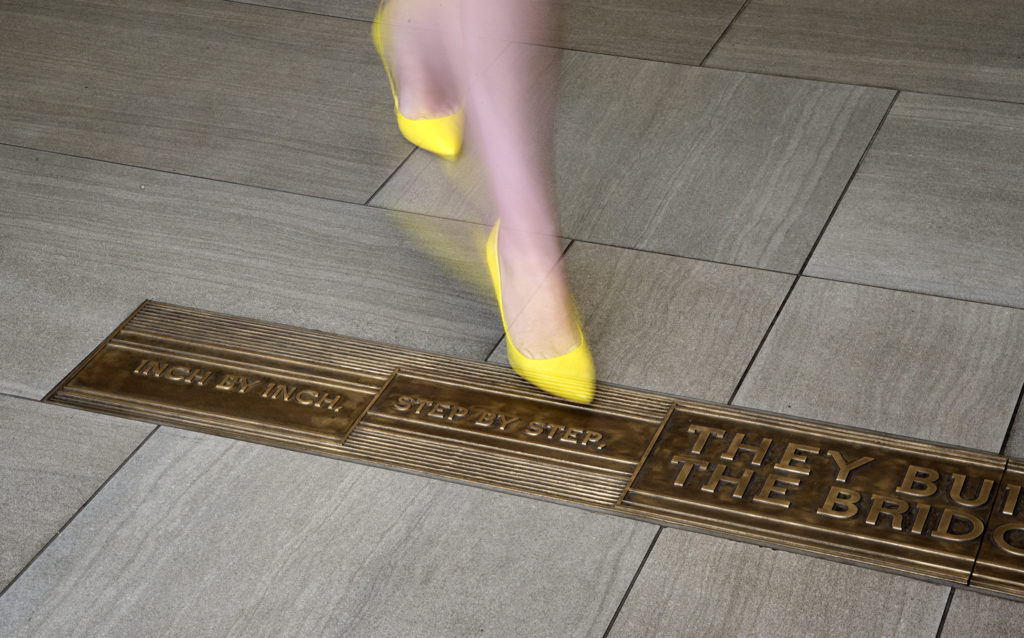NSW History Fellowship Recipient: Minna Muhlen-Schulte
The 2018 NSW History Fellowship was recently awarded to GML Senior Consultant, Minna Muhlen Schulte.
We sat down with Minna to learn how she will use this incredible opportunity.
Q: Congratulations Minna! What is the NSW History Fellowship?
A: The NSW History Fellowship is offered by the NSW State Government to a historian to undertake a self-directed program of professional development. Activities might include travel, mentorships or internships, short term courses or research.
Q: What type of activities will you be undertaking?
A: The NSW History Fellowship is a really exciting opportunity for me to choose my own program of professional development which includes networking, field research and short courses abroad. I have just visited the Tatura internment camp sites and completed a series of oral history interviews with German-Australian families in Sydney and Melbourne. In June, I will travel to Belfast to attend the Dangerous Oral Histories Conference which explores history projects on ‘difficult’ topics and the ethical dilemmas that can arise in interviews with war survivors, former criminals or ex-combatants. At Oxford University I will attend a Digital Humanities course to learn about tools in the curation, representation and communication of data. Travelling to London, I will be meeting with the Centre for Public History and Heritage and the German Historical Institute to attend colloquia and discuss research on Anglo-German relations. While in Berlin visiting commemorative sites, I’m also going to attend a non-fiction writing course at the Universität der Künste to explore some of my ideas about the capital.
Back in Sydney I’m going to work with the wonderful new UTS Public History Centre to present some of the findings of my research. I’m really looking forward to gaining different historical perspectives from the people I meet but also learning some new skills to help me communicate my research to a wider audience.
Q: When you will be going?
A: From June until August 2018.
Q: Tell us about the topic area you will focus on.
A: With recent debates about the Captain Cook statue in Sydney and the removal of Civil War monuments in the Southern United States, I’ve been thinking a lot about how a community or individual remembers history versus the way it is commemorated in public. What happens when a memorial becomes offensive, or its meaning inevitably shifts between generations? Do you remove, relocate or reinterpret it? Does it erase history when these statues or sites are removed? With these questions in mind, my research will be looking at controversial commemorative sites in Germany (such as Treptower Park or the Neue Wache Memorial) and in Australia alongside the lived experiences of German-Australian families during WWII.
In Australian historiography, the study of Germans in Australia has tended to focus on WWI rather than the difficult memories from WWII. Migrating to Australia in the inter-war and post-war period these families were disconnected from Germany’s historical reckoning and privately dealt with the legacy of Nazism in the Australian context compared to the public debates in Germany. Berlin is renowned for the way in which it fuses the urban form, heritage interpretation and architecture with a very public wrestle with German history. However sites in Australia such as the WWII internment camps in Tatura, Victoria are also part of German war history but interpreted in the midst of the Australian military history. I’m interested in exploring some of the contradictions of memory and commemoration in these sites alongside personal memory or family oral traditions.
We wish you well, Minna!

